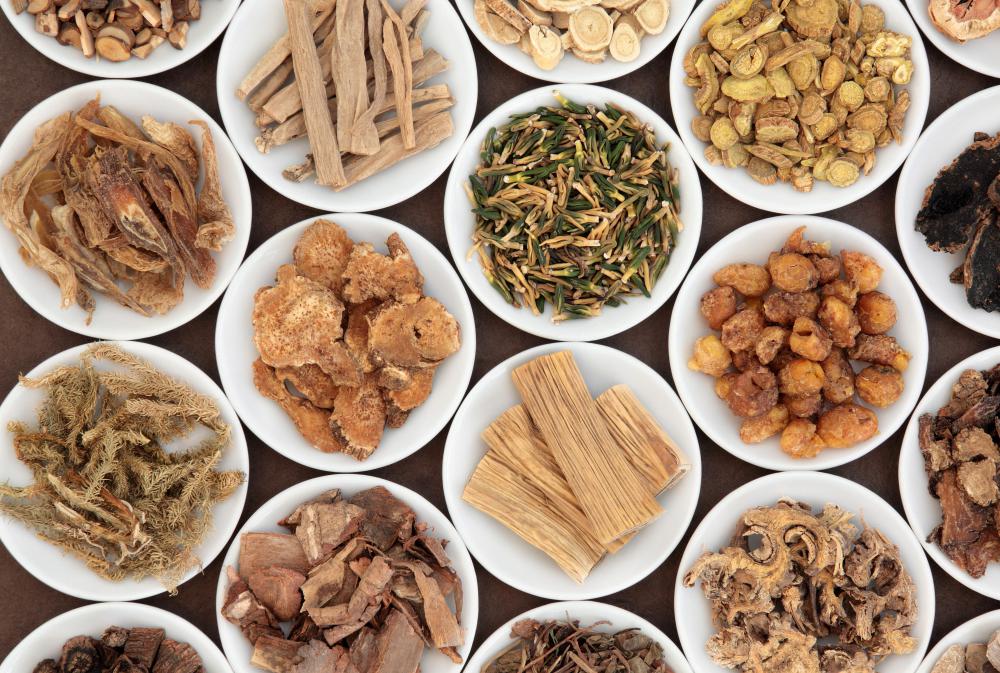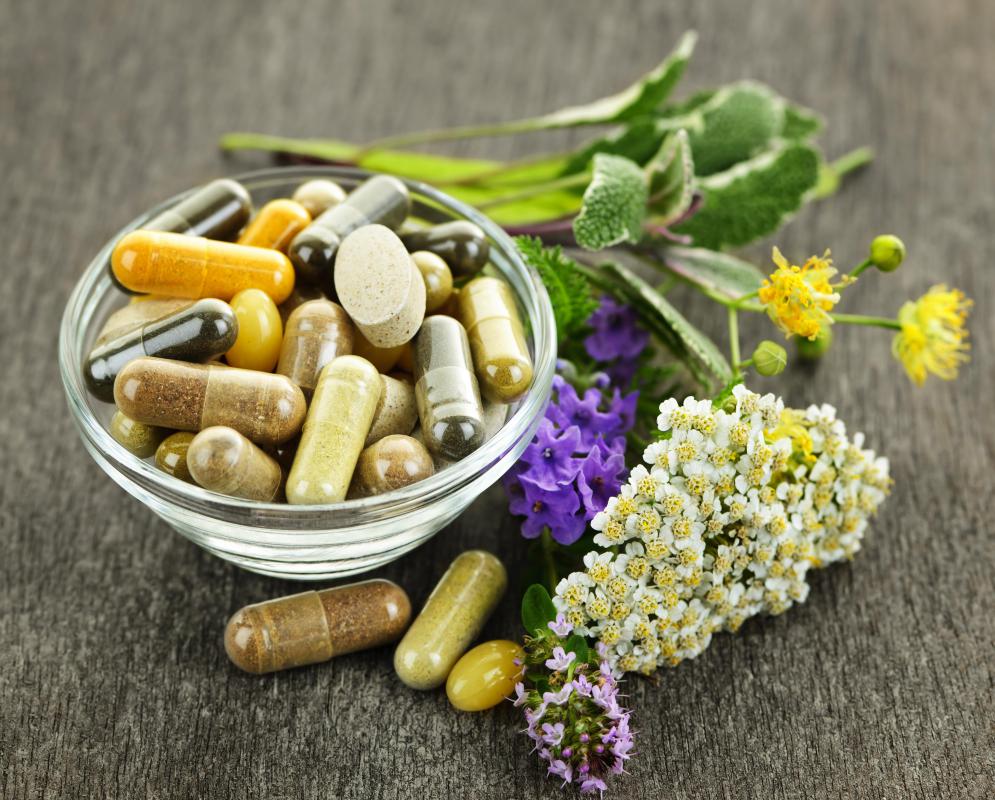At TheHealthBoard, we're committed to delivering accurate, trustworthy information. Our expert-authored content is rigorously fact-checked and sourced from credible authorities. Discover how we uphold the highest standards in providing you with reliable knowledge.
What is an Herbalist?
An herbalist is someone who specializes in handling herbs for medicinal purposes. In some cases, an herbalist focuses on growing herbs, while others may harvest or collect herbs in the wild, and some offer herbal prescriptions and advice. In many cases, an herbalist performs all three tasks, managing his or her own stock of herbs to ensure that they are of high quality.
The qualifications to become an herbalist vary widely, depending on the nation, and many nations have no set regulations for the practice of herbal medicine. In some regions of the world, herbalists can attend formal training programs and receive certification through an independent organization to ensure that they are well versed in the practice of herbal medicine. In other instances, someone may apprentice with an herbalist before setting up an independent practice.

The use of herbs in medicine is ancient, and in some parts of the world it is a practice which is considered on par with more mainstream medicine. In Asia, for example, many people see a Chinese herbalist who has studied Traditional Chinese Medicine (TCM) for medical treatment. In many Western nations, herbalism is considered complementary or alternative medicine, and it may be disparaged by some medical professionals.

An important part of herbalism is the identification of various herbs and what they can be used for. Since herbs do not have standardized ingredients like processed pharmaceuticals, an herbalist must also be skilled in collecting and storing herbs properly to ensure that they will work as intended. A professional and ethical herbalist is aware of drug interactions between various herbs and with mainstream pharmaceuticals, and he or she will carefully discuss a patient's situation before offering a prescription.

Herbal supplements can be used in someone's diet to promote general health or address system conditions. Some people also take herbal supplements to change their weight or physical appearance. This is not generally recommended, for an assortment of reasons, not least of which is that some of the herbs used in weight loss in particular may actually be dangerous. Herbs may also be taken in the form of teas, distillations, and essences for conditions ranging from menstrual cramps to uneasy stomachs.

Although herbal medicine is “natural,” it can still be harmful, as some plants do contain toxins. It can also be dangerous to mix herbs and prescription medicines, so it is important to discuss all herbs, medications, and supplements you are taking with health care providers to receive the best care. In addition, you may want to consider seeking treatment from a doctor if herbal treatment does not appear to resolve a condition. A competent herbalist will usually welcome the additional input of medical testing and other diagnostic tools to treat a patient's condition.
AS FEATURED ON:
AS FEATURED ON:















Discussion Comments
@umbra21 - It does worry me though that a lot of people know a little bit about herbs but very few people know a lot. Sage tea, for example, can be very effective, but it can also mask a fever that might otherwise show someone they need to go to a doctor.
Certain types of herbs should never be taken by pregnant women, or by children, or need to be taken in fairly precise amounts.
If you want to do anything more than just use herbs in your food, I would take a real herbalist course and learn all the dangers.
On top of that, you also need to know how to pick and prepare the herbs properly. Remember that leaves will have different strengths depending on where you pick them, how late in the year it is, the time of day and so forth.
It's complex and not something that I think people should dabble in.
@browncoat - You should go and get some herbalist training if you are still interested. Although if it was anything like my interest, it probably sprang from an obsession with fantasy and dystopian novels. I was convinced that we were going to go into the apocalypse and my ability to make coffee from dandelion roots was going to end up being a coveted skill.
Although, even if I think it's a little bit funny now, there are plenty of herbal cures that are worth knowing. Sage tea is recommended by doctors to take down a fever or hot flushes, for example. And clove oil can numb a sore tooth until you can get to a dentist.
I've always loved the idea of being a herbalist. When I was a teenager I would collect secondhand herbals (books on the subject) and go through them whenever anyone in my family had the slightest set of symptoms.
But I rarely actually did anything with the knowledge, as my family tended to be quite happy to just take a pill whenever they had a headache and my mother was paranoid that I would poison someone by accident.
I think it was kind of like a phase. I don't know if the information will ever come in handy.
Post your comments